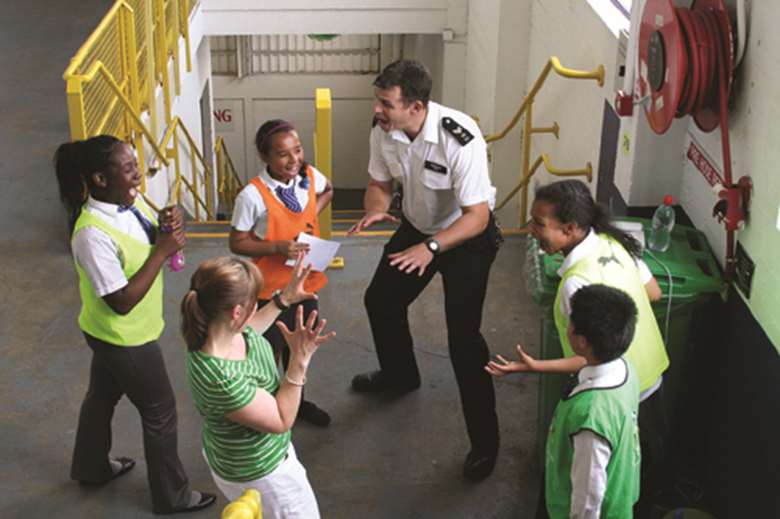Services urged to build relations with PCCs
Neil Puffett
Tuesday, November 13, 2012
New police and crime commissioners will make decisions affecting services for young people across health, education and social care

On 15 November, voters will have the opportunity to elect a local police and crime commissioner (PCC) for the first time. In total, 41 new PCCs will be elected across England and Wales, excluding London, to hold police forces to account for cutting crime and delivering on the priorities of local people.
The creation of the post of PCC means that funding for a range of services for children and young people could be about to change significantly.
In addition to taking control of large pots of money that currently go to youth offending teams (YOTs), PCCs will also make decisions affecting services for young people across the realms of health, education and social care. For example, they will sit on local health and wellbeing boards, and will distribute £4m for substance misuse services.
Important partners
PCCs have meanwhile been advised by the Home Office that they will be an “important partner” in work to reduce the number of troubled families, with the success of the programme said to rely on “sharing information” and “contributing resources”. Prevention programmes run in schools around issues such as drugs and gangs, meanwhile, could be at risk if PCCs decide to redirect resources to other priorities.
Following the elections, there will be a “handover week” prior to the PCCs’ first day of office on 22 November. From this point, PCCs will have 10 weeks – until 31 January – to develop priorities and approaches for their local police and crime plan, and corresponding budget proposals, meaning services must make their cases quickly.
Therefore, professionals working with children and young people will need to establish strong relationships with their local PCC as soon as possible.
James Plaskitt, a Labour PCC candidate in Warwickshire, says self-promotion will be vital, since many PCCs may be unaware of what local provision exists to support young people at risk of involvement in the youth justice system.
“Service providers mustn’t be shy about advocating what they do,” he says. “Often there are very powerful programmes and organisations out there, but they tend to be uncomfortable about promoting their work.”
Bob Ashford, former director of strategy at the Youth Justice Board, was a PCC candidate until pulling out in August. He warns that failure to engage with the new post-holders could be catastrophic for services.
“Unless children’s services, youth offending services, and other services for children and young people make a bold case and have a good business plan, they could find that provision being savagely cut,” he says.
According to Home Office advice, services must make sure that the business case for their provision is sufficiently “robust”, and includes evidence on effectiveness and value for money.
Present a strong case
Plaskitt agrees: “If you can say upfront that your programme reduces crime and offending, you will have the commissioner’s attention,” he says. “Make yourself relevant. The strongest selling points are case studies, because that makes it real. They are proven examples of people’s lives being turned round and that is more powerful than just bare statistics or descriptions of programmes.”
Meanwhile, national organisations are leading attempts to encourage PCCs to commit to engaging with and providing support for young people.
The National Council for Voluntary Youth Services (NCVYS) and the Howard League for Penal Reform have created charters for candidates to sign. As of the start of November, they each boast the signatures of more than 50 candidates. The NCVYS charter includes a pledge that commissioners make themselves accessible to young people through drop-in surgeries and social media.
Lucy Russell, senior campaigns co-ordinator at the Howard League, says the organisation has already initiated face-to-face meetings involving young people and candidates, which have proved successful in getting key messages across.
“We got young people to make a film about their relationship with the police and invited candidates to youth centres to watch it with them, which has been the most effective thing we have done in our campaigning,” she says. “If you create an event to talk about what’s happening locally, it can really work.”
INFLUENCING YOUR PCC
Youth justice
PCCs will be handed around £10m of Home Office crime prevention money, plus a further £4m for substance misuse services that currently goes to YOTs.
A variety of existing programmes provided by YOTs could be at risk as a result. The Youth Justice Board is advising YOTs from the same policing area to make a combined case for funding, because PCCs may prefer to commission area-wide initiatives rather than local schemes.
Health
PCCs will be influential members of new health and wellbeing boards, which will be fully operational from next April. Board members will decide on funding for areas including child and adolescent mental health services (CAMHS), teenage pregnancy and sexual health, so services addressing these issues should contact PCCs to highlight
their work.
Education
Schools involved with the Safer Schools Partnership are the most likely to be affected by any significant changes to local policing priorities. Police forces are already encouraged to work with their local authority, YOTs and other partners to identify the schools most in need of support from the police, based on social and demographic data. Schools should consider inviting PCCs to visit, so they can see work to prevent young people’s involvement with crime first hand.
Social care
Child protection work and the troubled families agenda rely significantly on joint working with the police. The government has told PCCs they will be an “important partner” in intensive family support. Local troubled families co-ordinators will have to develop relationships with PCCs to show how their work is reducing duplication across services and intervening early to save money in the long term.




